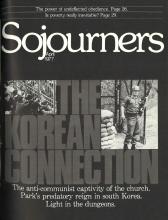The rhetoric of human rights and morality has dominated the first two months of the Carter Administration’s foreign policy. But Carter’s has been a highly selective concern over human rights, expressed most decisively only where it has been ideologically convenient, and not contrary to America’s global, economic, and political stakes.
In those countries where America has the most diplomatic leverage by virtue of their dependence upon the United States, Carter’s words and actions have been the weakest. In fact, the Carter Administration’s new budget has proposed to actually increase the level of economic and military aid over that spent last year in certain key American fiefdoms throughout the globe--where human rights are crushed with impunity by increasingly repressive regimes.
Consider these examples:
• The Philippines: Ferdinand Marcos continues his autocracy and martial law. Amnesty International estimates that the Marcos regime holds at least 16,000 political prisoners. Yet direct U.S. economic aid would be increased by the new Carter budget from $76.7 million to $100 million, keeping our military aid nearly the same as last year’s.
Meanwhile, negotiations continue over the amount of additional military and economic aid Marcos will receive in future years from the United States as payment for maintaining American troops and bases there. An offer of $1 billion over the next five years made by Kissinger in the last days of his power was rejected as insufficient by Marcos.
Read the Full Article

